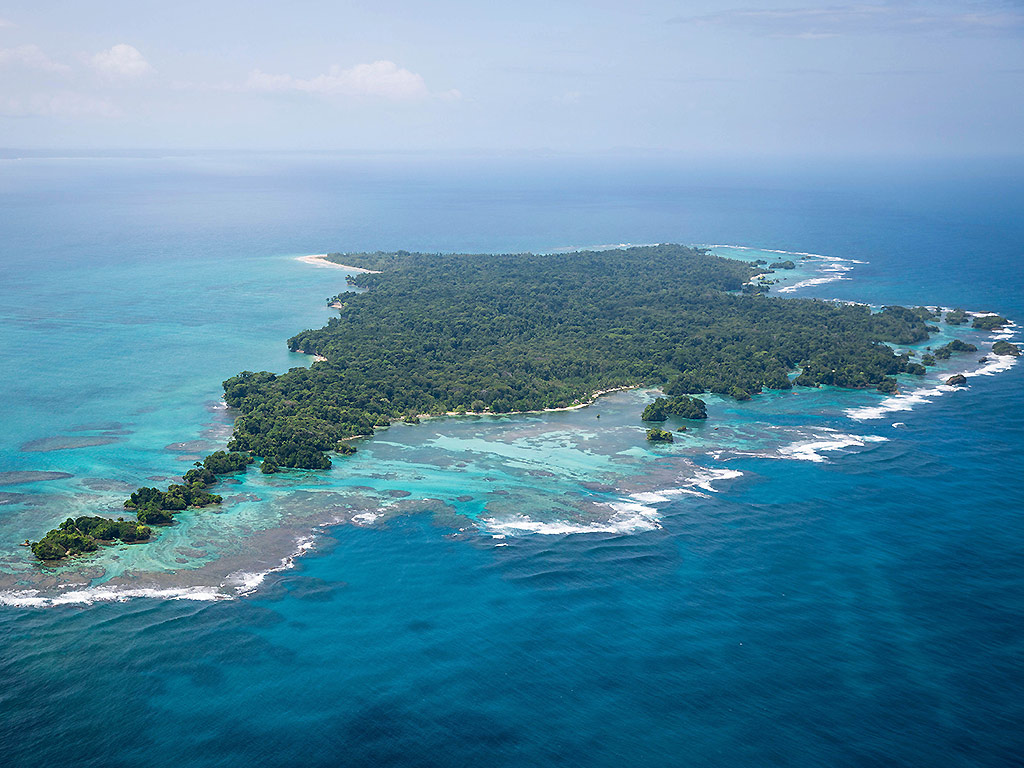If you’re a nature lover, then there is absolutely no question you’re going to enjoy the follow-up to the immensely successful Planet Earth — Planet Earth II.

Starting up with its trademark shot of our little blue planet (which is mesmerizing in itself), once again the BBC Earth series is narrated by 90-year-old broadcaster and naturalist David Attenborough. As with the previous series, the cinematographers and producers travel to the highest and lowest points on the planet, bringing unbelievable footage back with them.
The original Planet Earth aired in 2006, and now, 11 years later, there have been incredible advances in camera tech and photo quality, and those are reflected in Planet Earth II. Some angles are so up-close, you’ll be left shocked in wonderment at how they even got the shot in the first place.
READ MORE: Snoop Dogg narrating Planet Earth? Online petition wants rapper to take over
Global News was fortunate enough to attend an early screening of the first episode of Planet Earth II, titled Islands. (Obviously, as the name implies, the episode focuses entirely on island wildlife and ecosystems.) Here are 9 things to know about what to expect from the follow-up miniseries.
1. Each of the six episodes feels 10 minutes long
It’s a testament to the enjoyability of the series that each episode feels much shorter than its 60-minute runtime. As soon as you’re fully absorbed in what’s happening and eagerly awaiting the next segment, the episode is over. It’s bittersweet, but hey, there’s no one stopping you from watching it all over again.
2. It’s appropriate for humans of all ages
Research biologist and Islands producer, Elizabeth White, who worked on the episode for three-and-a-half years, finds it incredibly heartwarming that people are identifying with nature — even little kids. Planet Earth II has already aired in the U.K. to record-breaking results.
“It was the most-watched wildlife documentary for 15 years,” said White. “Unbelievable viewing figures… almost half the population of Britain has watched some of it. What was really, really nice is how people came together. It became event television, which many of us think doesn’t really exist anymore. People would get together, have a dinner party and sit and watch it together. If they weren’t together, they were tweeting about it. Children were able to stay up and watch it, and they were actually demanding their parents watch too.”
Not to worry — while the series is intense, the footage is mostly appropriate for children. You’ll know when to cover their eyes.
READ MORE: Jimmy Fallon re-enacts U.S. President Trump’s press conference: ‘You’re all fake news’
3. It’ll make you feel dumb for caring about unimportant things
While a poor male albatross is waiting for his mate, while a sloth is moving (very slowly) through a river and across the trees to find an elusive female, while baby iguanas are racing for their lives to the ocean, we humans are sitting around fretting about our mortgage or what clothes we’re going to wear that day. To be made aware that these animals are living life-or-death situations every second of the day, it really hits home that objectively, we’ve got it easy, survival-wise.
“Animal lives are dramatic,” said White. “Their lives are all about finding food, finding a mate and not dying. Within those different categories, it’s quite easy to find stories. Obviously we look for the ones that are dramatic or wistful, with emotional attachments, like the albatross waiting for his mate to come back.”
4. It’ll also make you feel bad about humans in general
When you learn that a species of ant (called the Yellow Crazy Ant, seriously) was inadvertently brought to Christmas Island by humans, and is now directly responsible for the decline of the island’s native crab species, it feels like a kick in the gut. The plus side is Planet Earth II may make us rethink our actions and take steps to protect whatever animals and environs we can.
5. The cuteness is out of hand
From the sloths to the penguins to the monkeys, there is cuteness abound. And we all know how easy it is to care about cute things.
“Half of the reason I wanted to help make this series is that feeling that people get quite disconnected from nature,” said White. “We all live in a world of smartphones, you jump in your car to go to work, you can very easily get disconnected. It’s nice to see people making jokes about animals and relating to animals.”
6. There is some sadness too, but hey, that’s nature
As you can see in the video below, it’s a literal battle for these penguins to get back on land. Nature is relentless and savage, and there’s no room for error.

“The penguin island is heaven and hell. It’s a paradise and it’s a prison,” said White.
The penguin sequence in particular highlights how grateful we should be that we live in warm houses, but the iguanas vs. snakes segment was the most popular, according to White.
“We knew, as soon as we saw the footage, that it would capture people,” she said. “I was present for some of the shooting, and so many times I’d have to cover my eyes and shout ‘Did it get away?!'”
7. Planet Earth II‘s footage is jaw-dropping
Since technology and camera ability has improved over the last several years, some of the angles and shots taken by the crew are simply unbelievable. In the olden days, you may have had footage of animals from far away, but now, the camera is so up-close it’s practically in the animals’ mouths. It feels like you’re flying through the trees with the monkeys or swimming in the ocean with the penguins. The series really puts you in the centre of the action, and it’s a wild ride.
READ MORE: ‘SNL’ on Global: Watch the skits that scored highest audience numbers in 13 years
8. There may or may not be a Planet Earth III coming
“They have asked… it’s definitely been mentioned… at the moment, there’s films commissioned going up to 2020, so there’s stuff already being made,” said White. “I wouldn’t discount the idea that it might be revisited. There’s certainly enough material, it’s whether or not the technology and interest is there. And Sir David Attenborough is 90, but he’s still so fit, active and mentally sharp, but obviously it’s up to him how long he wants to keep doing this.”
Based on the success of Planet Earth II, it’s almost a sure bet that we’ll see another iteration in the semi-near future.
9. You’ll feel the urge to travel after watching
If you’re not bitten by the travel bug while watching, you’re not paying attention. From the bubbling lava of a volcano to the gorgeous reefs of The Seychelles, there are so many places to explore. Above all, Planet Earth II makes you realize the immense beauty of this planet we call home.
‘Planet Earth II’ premieres in Canada with ‘Islands’ on Saturday, Feb. 18 at 9 p.m. ET/PT on BBC Earth, simulcast with BBC America in the U.S.










Comments